Keynote Speakers
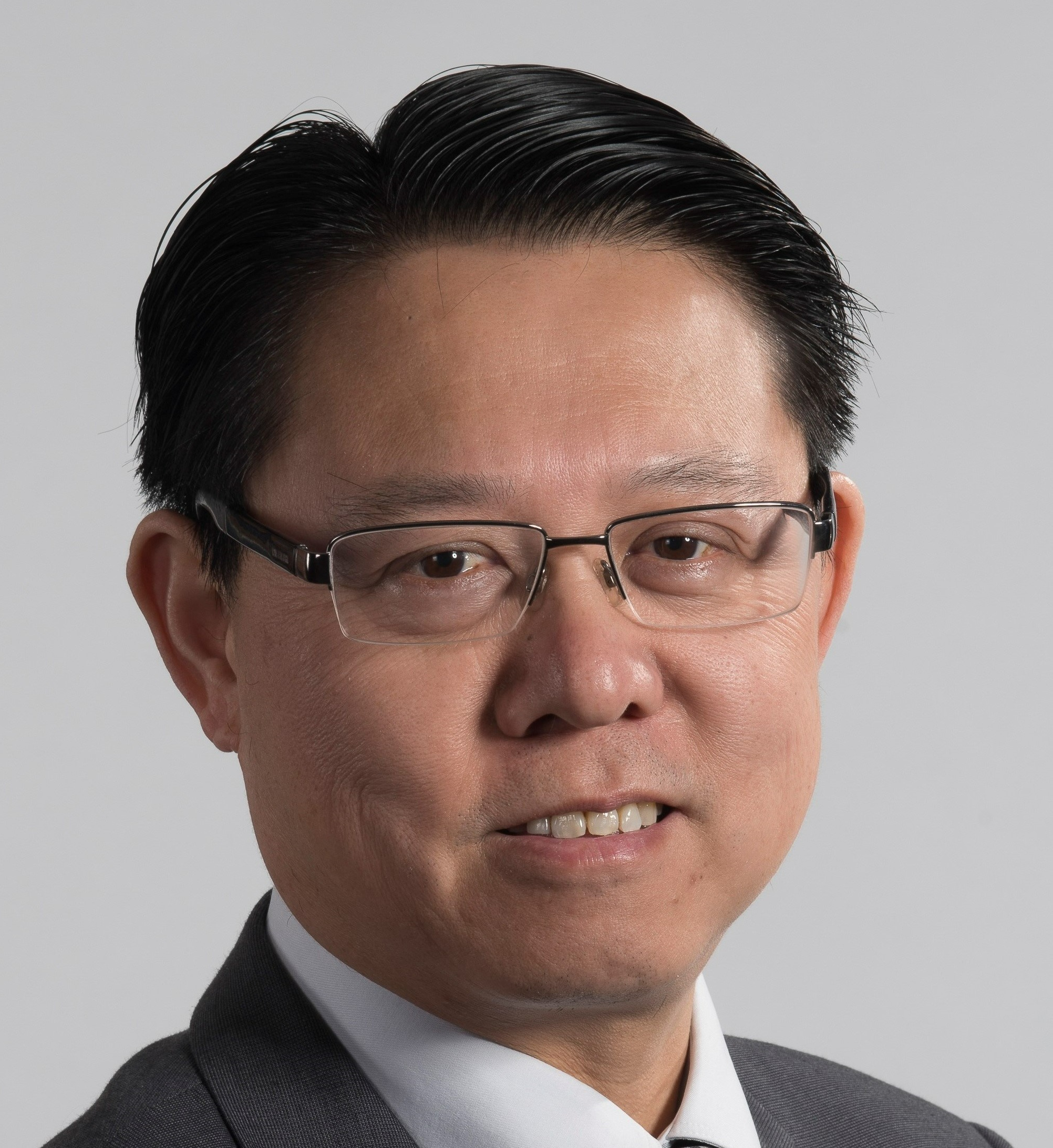
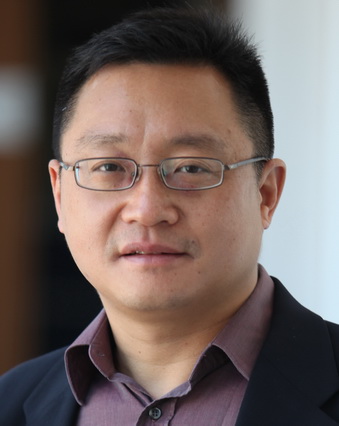
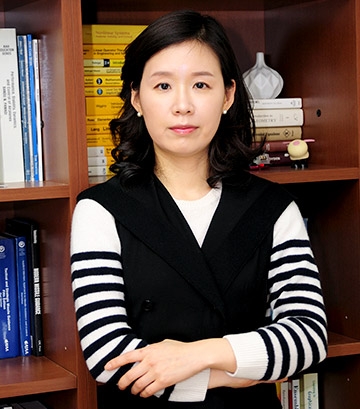
Keynote 1: Terminal Sliding Mode Control: Foundations, Advances, and Applications
Xinghuo Yu
Distinguished Professor, HonFIEAust, FIEEE RMIT University, Melbourne, Australia
Abstract:
Sliding Mode Control (SMC) has been studied and utilised extensively due to its robustness and simplicity. At its core is the concept of the sliding mode, induced by a discontinuous control law that forces the system state onto a prescribed manifold with desired dynamics. While finite-time reachability of the sliding manifolds is commonly required, conventional sliding manifolds are typically designed with asymptotic stability. Terminal SMC (TSMC), as a specialised class of SMC, has emerged over the past three decades, enabling finite-time reachability of both the sliding manifolds and the system equilibrium. This approach offers distinctive advantages such as fast response, enhanced robustness, and high steady state precision. In this talk, we will introduce the fundamentals of TSMC, review its developments over the last 30 years, and explore the future challenges and opportunities that lie ahead. In particular, we will demonstrate its applications in intelligent mechatronics, deep learning and global optimisation.
Speaker Bio:
Xinghuo Yu is an Associate Deputy Vice-Chancellor and Distinguished Professor at RMIT University (Royal Melbourne Institute of Technology), Melbourne, Australia. He served as the President of IEEE Industrial Electronics Society in 2018 and 2019.
Professor Yu is a Fellow of Australian Academy of Science, an Honorary Fellow of Engineers Australia, and a Fellow of the IEEE, Australian Computer Society and Australian Institute of Company Directors. His research focuses on control systems engineering, intelligent and complex systems, and power and energy systems. He received numerous prestigious awards, including 2018 MA Sargent Medal from Engineers Australia and 2013 Dr.-Ing. Eugene Mittelmann Achievement Award from IEEE Industrial Electronics Society. Professor Yu’s work has garnered over 57,000 Google Scholar citations, with an H-index of 114. He has been recognized as a Clarivate Highly Cited Researcher in Engineering for ten consecutive years (2015–2024).
Keynote 2: Disturbance Observer Design: A Nonlinear Indirect Adaptive Robust Control Approach
Bin Yao
Professor and ASME Fellow School of Mechanical Engineering, Purdue University, USA
Abstract:
Feedback control design is an art of balancing, trading off various conflicting performance requirements under unavoidable modeling uncertainties/disturbances and hard constraints in implementation. For effective trade-offs, a holistic approach has to be taken to the modeling, the real-time uncertainty estimation and compensation, and the feedback control with guaranteed robust stability and performance. Such a holistic approach is well reflected in the mathematically rigorous nonlinear adaptive robust control (ARC) theory in synthesizing performance oriented controllers with built-in intelligences under practical constraints. The developed theory has also been applied to a number of control applications and various mechatronic systems. Significant performance improvement has been seen in the experimental studies of these applications.
This plenary talk first presents the ARC perspectives on the essential roles of models, estimations, and feedback controls. The talk then re-looks at the specific problems in the disturbance observer design (DOB) from such a perspective and presents a nonlinear indirect ARC approach. DOB has been widely adopted in mechatronic system designs due to its simplicity but practical effectiveness using the concept of lumped input disturbance and estimation/compensation. The presented ARC approach extends the concept to the direct estimation and compensation of lumped effect of all uncertainties, which makes the design applicable to non-minimum phase systems as well. The approach also makes full use of practically available prior process information such as the bounds of disturbances to be deal with to construct a controlled nonlinear estimation and compensation that enables the complete separation of feedback control designs with guaranteed robust stability and performance from the lumped uncertainty estimation. As a result, the well-established robust control theory of -synthesis can be used for the underlying feedback control designs, while the severe performance limitation of Q-filer design in DOB for robust stability is naturally overcome. Additional benefits of the presented approach include better ability to deal with hard constraints such as control input saturation. Comparative experimental results on a number of applications will be presented to illustrate the presented indirect ARC approach.
Speaker Bio:
Dr. Yao received his PhD degree in Mechanical Engineering from the University of California at Berkeley in February 1996 after obtaining M.Eng. degree in Electrical Engineering from Nanyang Technological University of Singapore in 1992, and B.Eng. in Applied Mechanics from Beijing University of Aeronautics and Astronautics of China in 1987. Since 1996, he has been with the School of Mechanical Engineering at Purdue University, where he was promoted to the rank of Professor in 2007. He was also honored as a Kuang-piu Professor in 2005 and a Changjiang Chair Professor at Zhejiang University by the Ministry of Education of China in 2010.
Dr. Yao received a Faculty Early Career Development (CAREER) Award by National Science Foundation (NSF) in 1998 and a Joint Research Fund for Outstanding Overseas Chinese Young Scholars from National Natural Science Foundation of China (NSFC) in 2005. He is the recipient of the O. Hugo Schuck Best Paper (Theory) Award from the American Automatic Control Council in 2004 and the Outstanding Young Investigator Award of ASME Dynamic Systems and Control Division (DSCD) in 2007, the Best Conference Paper Awards on Mechatronics of ASME DSCD in 2012, and a winner of the 4th Nagamori Awards by Nagamori Foundation, Kyoto, Japan, in 2018.
Dr. Yao is a Fellow of ASME and a senior member of IEEE and has chaired numerous sessions and served in a number of International Program Committee of various IEEE, ASME, and IFAC conferences including the General Chair of the 2010 IEEE/ASME International Conference on Advanced Intelligent Mechatronics and the International Program Committee Chair of the 6th IFAC Symposium on Mechatronic Systems in 2013. From 2000 to 2002, he was the Chair of the Adaptive and Optimal Control Panel and, from 2001 to 2003, the Chair of the Fluid Control Panel of the ASME Dynamic Systems and Control Division (DSCD). He was one of the founding members to the ASME DSCD Mechatronics Technical Committee in 2005 and served in various roles including TC Chair. He was a Technical Editor of the IEEE/ASME Transactions on Mechatronics from 2001 to 2005, Associate Editor of the ASME Journal of Dynamic Systems, Measurement, and Control from 2006 to 2009, and the Co-Editor-in-Chief (Mechatronics) of the IFAC J. of Mechatronics from 2022 to 2023.
Keynote 3: Advancing Aerial Robotics: From Autonomy to Intelligent Manipulation
Hyoun Jin Kim
Professor Seoul National University, South Korea
Abstract:
Autonomous drones have become a crucial technology for applications ranging from exploration and surveillance to logistics and disaster response. However, realizing their full potential requires overcoming significant challenges in autonomy, coordination, and physical interaction with the environment. Compared to ground robots, aerial platforms must operate with greater safety and robustness against uncertainties and disturbances, making stability and control even more critical.
Aerial manipulation—where drones are equipped with robotic arms—unlocks new capabilities such as grasping, transporting, and assembling objects in complex, unstructured environments. However, integrating robotic arms with drones introduces unique challenges in control, stability, and precision, necessitating advanced planning, real-time adaptation, and robust feedback mechanisms. Additionally, trajectory generation for aerial systems must account for physical constraints, dynamic feasibility, and efficient resource management to ensure reliable operation in real-world scenarios.
This talk will delve into recent advancements in drone platforms, aerial manipulation, multi-drone cooperation, and trajectory planning. It will also address ongoing challenges and explore future directions in the development of next-generation autonomous aerial systems, with an emphasis on enhancing their real-world applicability and performance.
Speaker Bio:
H. Jin Kim is a Professor of Aerospace Engineering and an Adjunct Professor in the Graduate School of Artificial Intelligence at Seoul National University, Korea. She earned her B.S. in Mechanical Engineering from the Korea Advanced Institute of Science and Technology (KAIST) and her M.S. and Ph.D. in Mechanical Engineering from the University of California, Berkeley. Before joining Seoul National University in 2024, she was a Postdoctoral Researcher and Lecturer in the Department of Electrical Engineering and Computer Sciences at UC Berkeley.
Her research focuses on navigation, control, and path planning for autonomous robotic systems, including ground robots, autonomous vehicles, and aerial robots. She has served on the editorial boards of several leading international journals and conferences, including IEEE Transactions on Robotics, The International Journal of Robotics Research, IEEE Transactions on Networked Control Systems, Mechatronics, an International Journal of IFAC, and the International Journal of Control, Automation, the IEEE International Conference on Robotics and Automation (ICRA) and the International Conference on Intelligent Robots and Systems (IROS). She serves as an Editor for Robot Learning at ICRA and as a Program Co-Chair for the IFAC World Congress 2026. She has been recognized as one of Korea’s leading researchers in 100 Future Technologies and is a member of the National Academy of Engineering of Korea.
Technical Tracks
There are nine Technicak Tracks in the conference:
-
Advanced Motion Control in Mechatronics
-
Biomechatronics and Bioengineering Systems
-
Control, Robotics and Mechatronics
-
Data Driven Control and Monitoring
-
Haptics and Human Robot Interaction
-
Industry Applications and Information and Communication Technologies
-
MEMS and Nanotechnoligies
-
Network-based Control Systems and Applications
-
Sensors and Actuators
Accepted Special Sessions
There are eight Special Session Tracks in the conference:
- Advanced Control Technologies for Multi-Motor Vehicles by BM Nguyen, S. Nagai and V. Ivanov.
- Robotic Systems for Physical Interaction: Bridging Humans, Machines, and the Real World by E. Sariyildiz, B. Ugurlu, T. Shimono and T. Uzunovic.
- Intelligent System Using Sensor Information Processing And Sensor Data by K. Hidaka, J. Sato, S. Shimizu and N. Costen.
- Advanced Converters and Controls for High-Efficiency and High-Power Density Drive Systems by R. Islam, W. Xu, J. Ge and H. Du.
- F-REI’s Challenges for Harsh Environment by K. Ohnishi.
- Human-Robot Interaction for Assistive Technologies by M. Niitsuma, H. A. Almusawi and S. Katsura.
- Cognitive Robotics and Advanced Mechatronics in Human-Centric Smart Manufacturing by S.H. Chong, S. Yokota and J. She.
- Data Utilisation for Advanced Motion Control by S. Sakaino, I. Takeuchi, Y. Nagatsu and H. Zhou.
Conference Gala Dinner.
We are excited to invite our participants to two exclusive Conference Gala Dinners, designed to offer a unique experience for all attendees:
For Yellow Ticket Holders:
Join us for a memorable evening at the Harbourfront Sea Restaurant on Saturday, March 1st, the second day of the conference, at 6:00 PM. This event promises fantastic dining, networking opportunities, and breathtaking views. We look forward to celebrating with you!
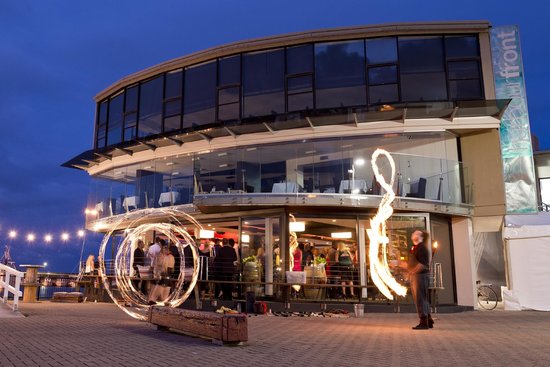
Reaching the Harbourfront Sea Restaurant: You can use the free shuttle buses 55A and 55C to reach the conference gala dinner on March 1st. Please alight at Bus Stop 10, Wollongong Harbour, which is the closest stop to the gala dinner venue.
For Green Ticket Holders:
Due to space limitations, we will be hosting a separate Gala Dinner for students at the North Beach Pavilion Restaurant on Saturday, March 1st, at 6:00 PM. This event offers a wonderful opportunity for students to relax, network with peers, and enjoy an evening in a welcoming atmosphere, all while taking in the stunning ocean views. We look forward to seeing you there!
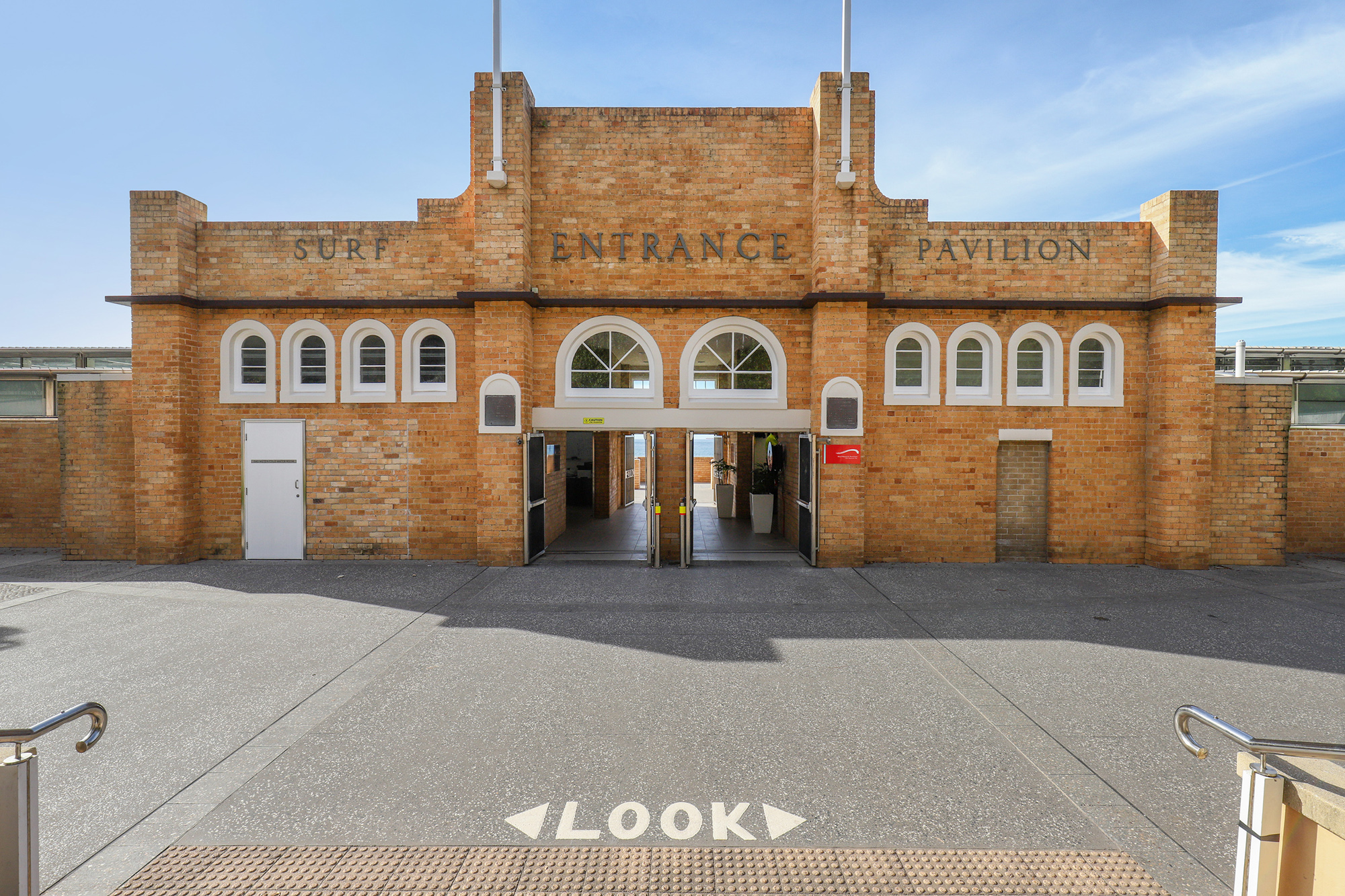
Reaching the North Beach Pavilion Restaurant: You can use the free shuttle buses 55A and 55C to reach the conference gala dinner on March 1st. Please alight at Bus Stop 9, Gipps Street, George PI, which is the closest stop to the gala dinner venue.